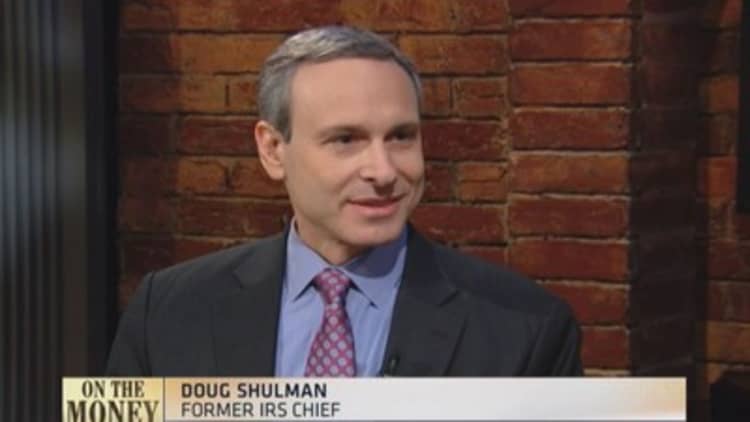
U.S. Treasury Secretary Jack Lew earlier this week railed against U.S.-based companies that attempt to avoid domestic taxes by re-incorporating overseas through acquisitions, calling out their lack of "economic patriotism." Pharmaceuticals company Mylan and drug chain Walgreen sparked the debate on what's known as corporate inversions when both announced their intention to buy foreign companies for the tax benefits.
Lew's comments once again drew out the decision American companies face—stay domestic and pay American tax rates or go elsewhere for savings.
Center on Budget and Policy Priorities senior fellow Jared Bernstein thinks Lew has a point.
"It does strike one as economically unpatriotic to invert in order to lower your tax bill. Though again, they're essentially following a set of incentives that kind of point them in that direction," Bernstein said. "This is one result of globalization and a pretty messed up corporate tax code."
Read MoreJack Lew pushes US Congress to crack down on tax 'inversions'
Currently, the U.S. has the highest corporate tax rate of all the OECD countries at 35 percent, a fact that corporations argue forces them to find tax savings abroad. The Congressional Research Service found that the number of corporate inversions has accelerated, with 47 such deals made in just the last decade. It also discovered that the U.S. Treasury would lose an additional $20 billion in tax revenues over the next decade because of these deals.
Former IRS Commissioner Doug Shulman isn't overly concerned about this study's findings about tax revenues generated each year.
"There's $3 trillion of taxes that are brought in. The corporate taxes bring in about 10 percent of that," explained Shulman. "Even when a company inverts, they're still paying some U.S. tax on their U.S. operations. They're just out of the U.S. tax net. They're not going to be paying on worldwide operations in the U.S."
Read MoreLew calls for sweeping business tax reform
While President Barack Obama and both parties in Congress agree that the way forward is to lower the corporate tax rate, Bernstein said he believes that tactic can't be the only solution, because the U.S. could never afford to go low enough to beat a country like Ireland, for instance, which boasts a 12.5 percent corporate tax rate.
"We need to do something else to discourage inversions," Bernstein said. "I think the best way to go would be to change the requirement in terms of shareholdings so that instead of the current shareholders continuing to own 80 percent combined value of the new company, it should be moved to 50 percent."
— By CNBC's Marqui Mapp

